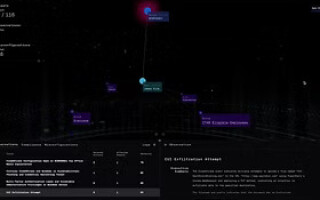Experiment reveals advantage of quantum processing over classical processor
NewsMay 15, 2017

CAMBRIDGE, Mass. A prototype quantum processor repeatedly beat a traditional processor in a race to solve a puzzle, figuring out a secret combination up to 100 times faster by using exotic physics to sort through data that was deliberately packed with errors, according to the results of an experiment detailed in a recent academic paper by scientists from Raytheon and IBM.
The experiment -- detailed in the article "Demonstration of quantum advantage in machine learning," published in the April 2017 issue of the journal Nature Quantum Information -- marks a small but significant step forward for quantum computing, an emerging yet still very uncertain area of technology. In the article, the Raytheon/IBM team's work challenges the notion that quantum computers are only souped-up analog computers and will never have more than a negligible advantage over classical machines.
As detailed in the magazine, the experiment took place at Raytheon BBN Technologies in Cambridge, Massachusetts: The team programmed an ordinary desktop computer to generate a four-digit combination; that data was then sent to a small quantum circuit that could also function as a classical processor. Initially, with plain, clean data, the race between the regular and the quantum computer came out in a tie, a result the IBM researchers had predicted in a previous paper on quantum machines. The team then made the problem harder, telling the desktop computer to confuse the processor by throwing errors into the information. As the data became less clear, the quantum processor's margin of victory increased.
The processor used a quantum phenomenon known as entanglement, which allowed it to see two pieces of data as identical twins: As long as it could see one piece, it knew all the information about the other. In contrast, the classical processor was much less tolerant of the distorted data, as a single glitch would throw off the rest of its computations.
The findings, said the research team, hint at a day when scaled-up quantum computers could start solving seriously complicated problems that could involve issues like advanced encryption technologies, complex new medicines, and more accurate radars.






